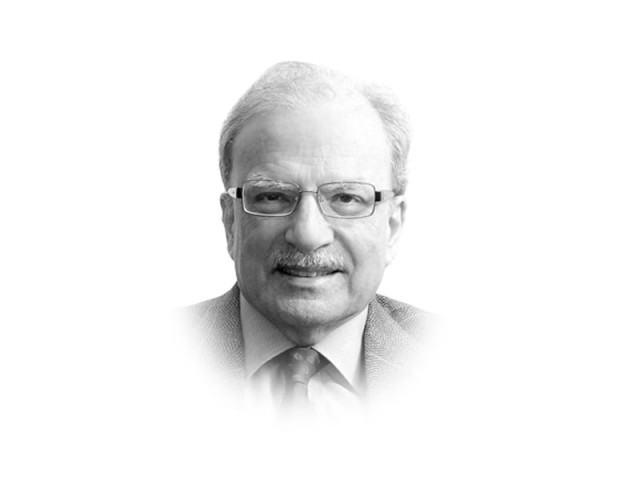Reaching equilibrium through negotiations
Promoting human welfare over national interest must be the most important objective policymakers

The writer is a former caretaker finance minister and served as vice-president at the World Bank
What connects the various parts of humanity are several types of flows – flows of capital, of goods and commodities, of information and knowledge and the movement of people across international borders. While the objective of public policymaking should be to factor in global change, it can be done with two very different approaches. Policymakers can choose to optimise national interest or they can search for ways to maximise public welfare.
National interest and public welfare are not always overlapping objectives. The pursuit of one can do a tremendous amount of damage to the other. This is the main lesson we should draw from the history of the exceptionally bloody contests witnessed in the first half of the 20th century. We are seeing this again in the beginning decades of the present century, as the rise of religious extremism continues to take a heavy human and economic toll in many parts of the world. Promoting human welfare over national interest, therefore, must be the most important objective policymakers must pursue. This is the first step in the logic policymakers should follow as they come to terms with the rapid changes taking place in the world.
The second and third steps are related to the processes that should be used towards achieving this goal. Economists and other social scientists who have worked in the area of game theory recognise that stable equilibrium cannot be reached by each contestant seeking the best outcome for herself, himself or itself. The search for equilibrium may mean that the contestants settle for not achieving the best outcome they want, but the second best. This approach is called the Nash equilibrium, named after Princeton Economist John Nash, who belatedly won the Nobel Prize in his subject after recovering from an attack of schizophrenia.
The third part in the logic also comes from Nash. He suggested that while the equilibrium achieved by pursuing the second best option may satisfy the contestants, it need not endure for all time to come. It should be seen as one part of a dynamic process. One state of equilibrium may be succeeded by another. This way, the contestants remain engaged with one another over time.
There are a number of instances where this approach is being tested in world affairs. Take, for instance, the problem Britain currently faces by continuing to remain a part of the European Union. There are many in that country who find the dictates from Brussels difficult to accept as the reach of the capital of the Union continues to increase. The British do not wish to lose their sovereignty to the Union in matters of social and financial policy. The London financial centre constrained by the regulatory framework developed by Brussels may cause it to lose some of its lustre. This is not acceptable to the British authorities. Also, Britain’s service sector-oriented economy is attracting a lot of migrants from the less developed parts of Europe. Before the new comers are able to settle down, they are entitled to the support the government provides its own out-of-work labour. This, London is not prepared to do.
The group in Britain that calls itself “Eurosceptics” would like to leave the Union. However, an equally politically and economically strong group wants Britain to remain in the Union. Faced by these difficult choices, Prime Minister David Cameron has opted for the second best outcome. He has renegotiated the terms of Britain’s membership but will test the agreement he has reached by holding a referendum.
The South Asian history has an even more interesting example of the successful working of the Nash equilibrium. Midwifed by the World Bank, Pakistan and India agreed to the Indus Waters Treaty. Signed in 1960, the two governments agreed to split the rivers of the system into two parts. The western rivers (the Indus, the Jhelum and the Chenab) went to Pakistan while the eastern rivers (the Ravi, the Beas and the Sutlej) were assigned to India. This was obviously the result of the two countries going for the second best. India, controlling most of the head-works that supplied water to the canals that watered large parts of Pakistan could have turned most of its neighbour, once again, into a desert. Pakistan threatened to go to war if that was India’s preferred option.
The Indus Waters Treaty is also a good example of a state of dynamic Nash equilibrium. The agreement allowed for changes as the situation on the ground changed. The same approach of negotiations could be used for resolving other differences between the two countries.
Were this approach to be followed by the nations of South Asia, they will be able to protect themselves from as well as take advantage of the changes occurring in the world around them.
Published in The Express Tribune, March 14th, 2016.
Like Opinion & Editorial on Facebook, follow @ETOpEd on Twitter to receive all updates on all our daily pieces.













COMMENTS
Comments are moderated and generally will be posted if they are on-topic and not abusive.
For more information, please see our Comments FAQ